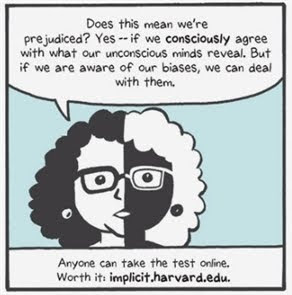

With recent questions being raised over the degree to which the majority of this research genuinely demonstrates optimism, attention to possible mechanisms generating such a bias becomes ever more important. Received academic wisdom holds that human judgment is characterized by unrealistic optimism, the tendency to underestimate the likelihood of negative events and overestimate the likelihood of positive events. Are they typically false? Are they epistemically irra-tional? The answers to these questions will be informed by an analysis of the extent to which optimistically biased beliefs In Sections 3 and 4, we consider their epistemic status. Are they tendencies to adopt and maintain positive beliefs and to make predictions that are optimistically biased, or to express desires and hopes about the self and the future? We suggest that we should understand optimistically biased cognitive states as beliefs and predictions. In Section 2, we ask how we should think about positive illusions. In Section 1, we distinguish between unrealistic optimism and other positive illusions and explain different ways of oper-ationalizing unrealistic optimism. Whether they do indeed have positive effects is beyond the scope of this paper. If such cognitive states can be said to be false or epistemically irrational beliefs, then they are candidates for being false or epistemically irrational beliefs that are useful. In order to assess such claims, we need to explain what unrealistic optimism is, whether the cognitive states that are unrealistically optimistic are belief states, and to what extent they are false. It is sometimes claimed that positive illusions generally, and unrealistic optimism specifically, are systematic tendencies to form beliefs that are biased, and often false, but have significant benefits (Taylor & Brown, 1988, 1994), because they increase wellbeing, contribute to mental and physical health, and support productivity and motivation (cf. Beliefs exhibit epistemic irrationality to the extent that they are badly supported by the evidence available to the agent, or are maintained despite counter-evidence which is available to the agent. There is an ongoing debate in philosophy and psychology as to whether false beliefs are epistemically irrational and whether they can have pragmatic benefits, even if they are epistemically irrational (Bortolotti & Sullivan-Bissett, 2015 Craigie & Bortolotti, 2014 Haselton & Nettle, 2006). In this paper we are interested in the nature of unrealistic optimism and other positive illusions as discussed in the psychological literature. Based on the classic and recent empirical literature on unrealistic optimism, we offer some preliminary answers to these questions, thereby laying the foundations for answering further questions about unrealistic optimism, such as whether it has biological, psychological, or epistemic benefits. We also ask to what extent unrealistically optimistic cognitive states are fixed. We are interested in whether cognitive states that are unrealistically optimistic are belief states, whether they are false, and whether they are epistemically irrational.

Here we consider the nature of unrealistic optimism and other related positive illusions. Research on the optimism bias has afforded us a unique window into decision-making, reward-processing and the potential for systematic irrationality in the human mind. Topics considered include: converse negative biases in depressive illnesses, the role of dopamine in optimism bias generation and modulation and evidence from functional neuroimaging studies. In this introductory overview, current understanding of the neural basis of the optimism bias is explored. The catastrophic impact of the recent economic collapse has laid this cognitive bias bare. The optimism bias is widely considered as one of the most reproducible, prevalent and robust cognitive biases observed in psychology and behavioural economics. Similarly, we underestimate the probability of experiencing negative events such as, serious illness or financial ruin. We overestimate the likelihood of success in work, relationships and fi nancial investments. Humans generally exhibit a pervasive future bias in favour of optimism.


 0 kommentar(er)
0 kommentar(er)
